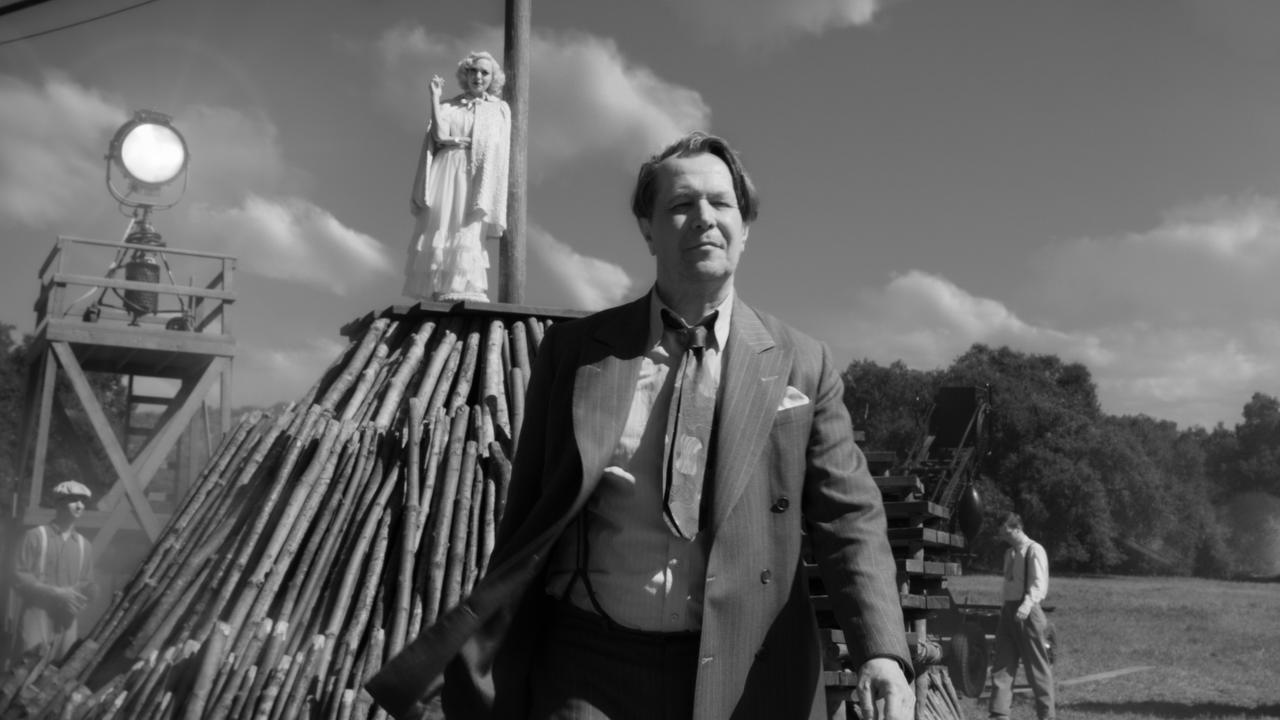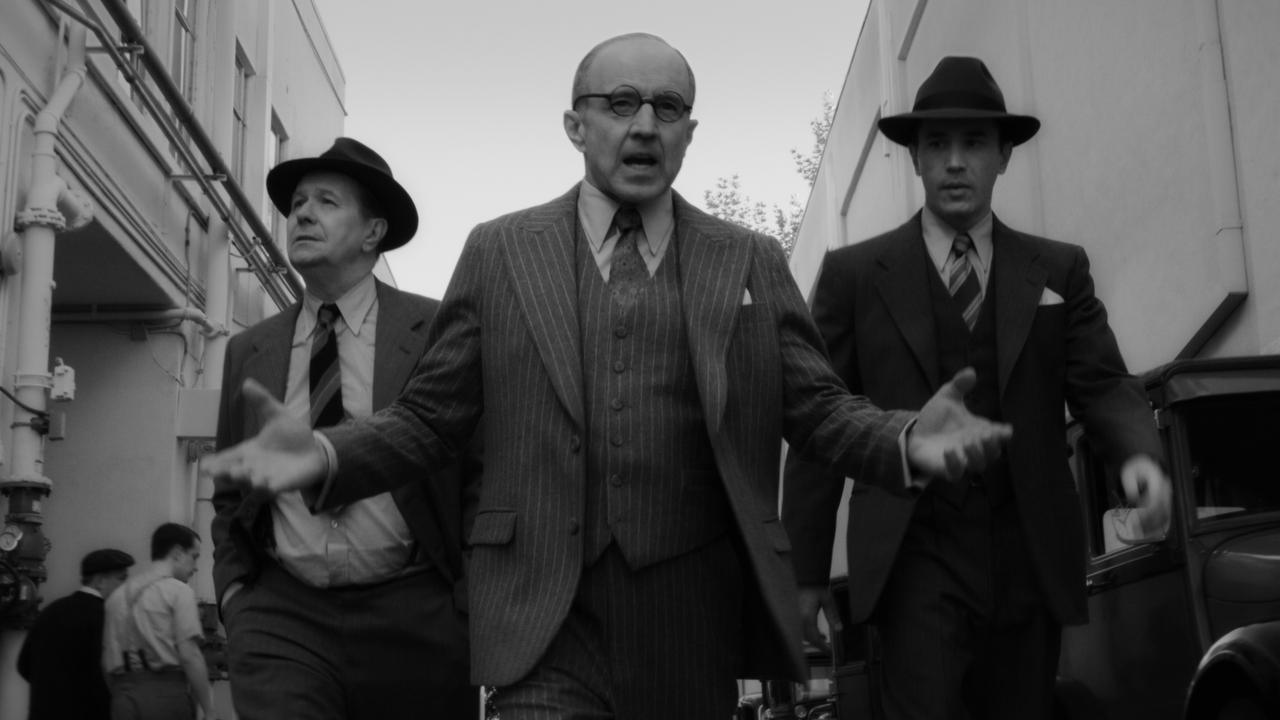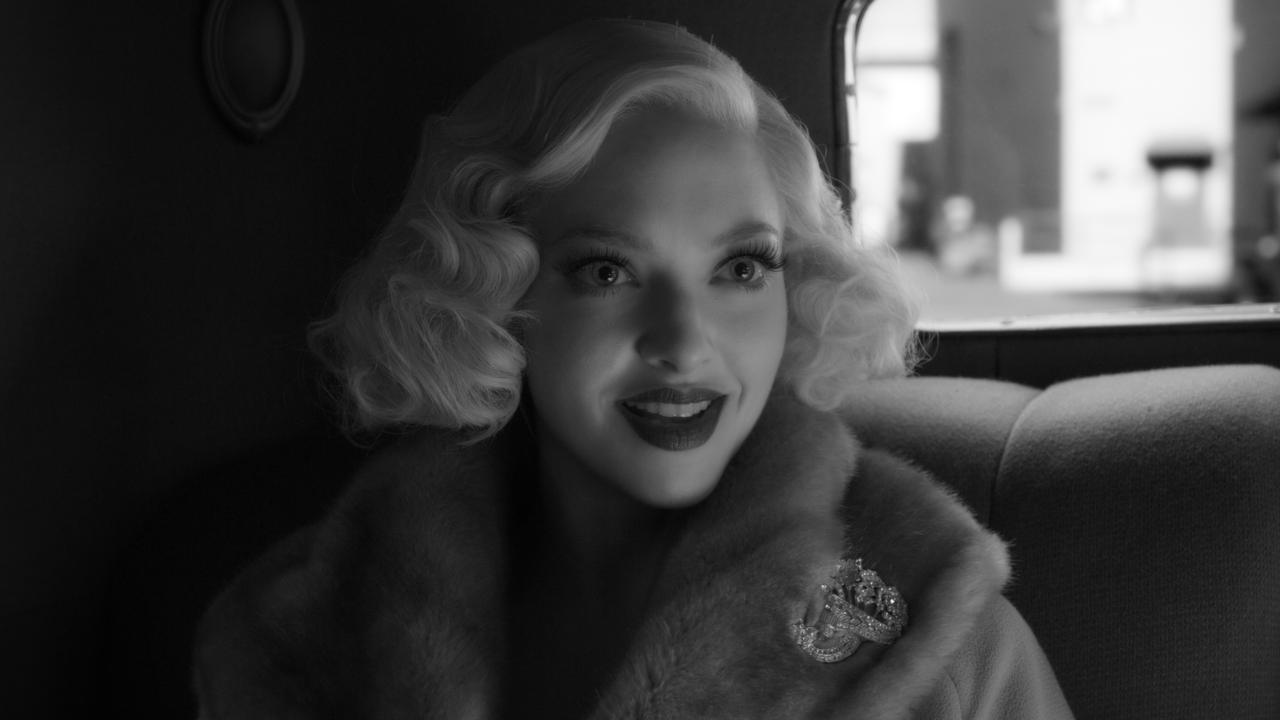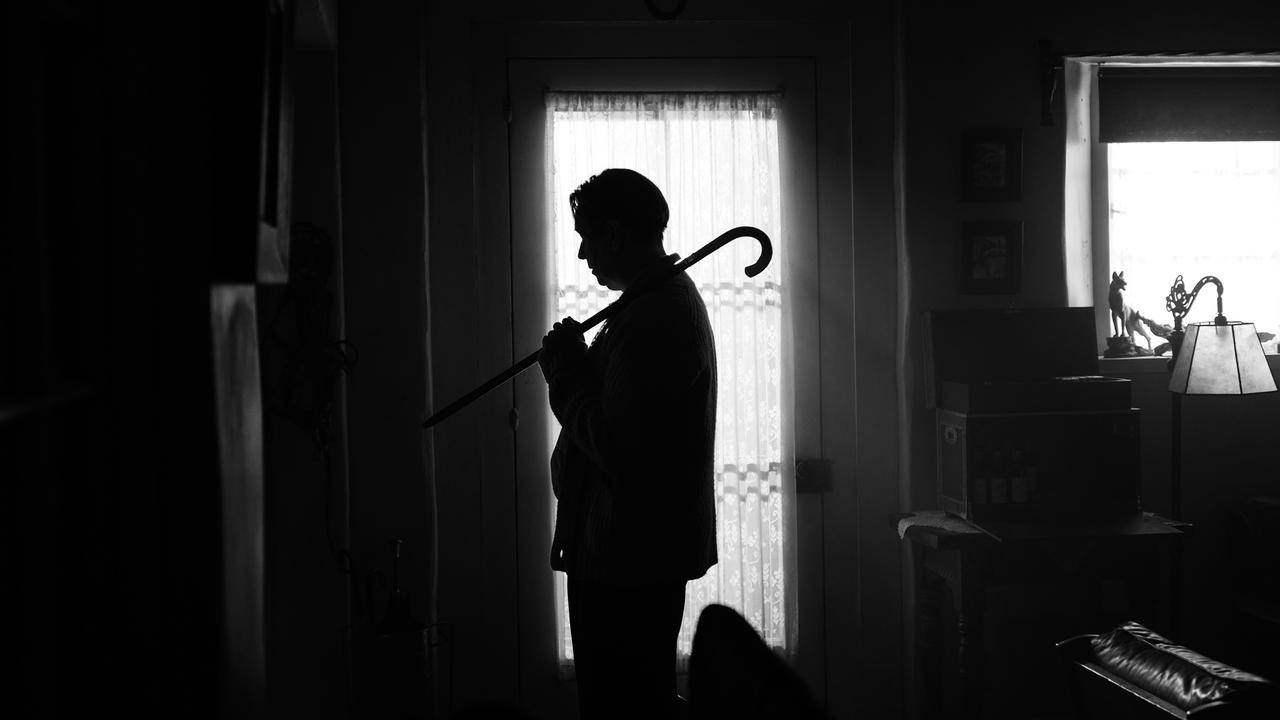David Fincher’s Netflix movie Mank is a superb, masterful piece of cinema
A leading Oscar contender, the latest film from Seven director David Fincher is stunning. Please don’t watch it on your phone.
Maybe the prospect of sitting through two hours of a black-and-white movie about old Hollywood doesn’t sound enticing.
But then you’d be missing out on a truly masterful film.
Mank, directed by David Fincher (Seven, The Social Network), releases on Netflix this week but if you can catch it while it’s still playing in cinemas, do. It is a supreme piece of filmmaking best experienced not just on the big screen, but with people in a theatrical environment. For the love of god, don’t watch this on your phone.
But more than a magnificent technical achievement, Mank is hypnotically entertaining, every breathtaking frame a marvel to see, every lyrical syllable that passes through the mouths of Gary Oldman, Amanda Seyfried, Lily Collins and Charles Dance a joy to hear.
Set in 1940, Mank tells the story of Herman J. Mankiewicz (Oldman), the Oscar-winning screenwriter who wrote (or co-wrote, depending on who you ask) Citizen Kane.

RELATED: Luther creator Neil Cross on how he writes killers
Mankiewicz is laid up after a car accident with the directive from wunderkind Orson Welles (Tom Burke) to hammer out the screenplay that would eventually be widely considered as one of best films in 120 years of cinema history.
Stuck in a cabin with a broken leg and two helpers (Collins as his secretary Rita and Monika Gossmann as housekeeper Frieda), Mankiewicz thinks back to his own fraught relationship with newspaper mogul William Randolph Hearst (Dance), the figure upon which Citizen Kane’s Charles Foster Kane was based.
Originally, Mank was supposed to be a story about the making of Citizen Kane and the fights between Mankiewicz and Welles – they would go on to both claim credit for the script – but this film isn’t about that.
If there’s an antagonist, it’s not the tempestuous Welles – it’s the calculating Hearst who used his media empire to wield considerable influence in US politics through emotion-driven, sensationalist tactics.
Mank’s flashbacks date to 1930, when Mankiewicz first meets Hearst and his long-time mistress Marion Davies (Seyfried).
The first hour of Mank plays in the old Hollywood sandbox, luxuriating in the details of that world including the Hollywoodland sign, the pitter-patter banter of pitching to David O. Selznick and trading lighthearted barbs in Hearst’s San Simeon castle among the likes of Norma Shearer.
Cinephiles who love the movies of that era or have spent hours listening to Karina Longworth’s You Must Remember This podcast will find themselves pulled into that universe, happy to savour the moments, like a Clara Bow poster hiding in the corner of a frame or the casual references to Hedda Hopper and Louella Parsons.

RELATED: Everything new to streaming this month
But there’s a scene at the midway point, between Mankiewicz and MGM legend Irving Thalberg (Ferdinand Kingsley), which shifts Mank into a different type of movie than the one you thought you were watching – though the pointers were there from the beginning.
It comes into focus that Mank isn’t just about one man’s vexing relationship with the power structures within the Hollywood system, but that this film talks to this exact moment in 2020, a year plagued by the lies and untruths spun in the service of a political contest, and the legacy of that on the discourse.
In Mank, it’s the 1934 California gubernatorial race in which Democratic candidate socialist Upton Sinclair was eviscerated by Hearst and MGM’s combined might in painting him as a dangerous element. Fake newsreels of African-Americans and indigent people endorsing Sinclair clearly codes him as “other”.
It’s propaganda at its most duplicitous and the resonance almost smacks you in the face.
Mank is operating at two levels and the second one is the older contemplative Mankiewicz in 1940 who, through the process of his craft, is reflecting on his legacy, his contributions to the industry and politics, and his regrets.

RELATED: Oscar winner Alan Ball on personal project
Oldman’s towering performance as the alcoholic Mankiewicz is matched by Seyfried as Davies, a much smarter and insightful person than the Susan Alexander character in Citizen Kane, her unflattering onscreen avatar.
Seyfried is entrancing, playing into the empathy and not the tragedy of a woman whose life and career was inextricably linked to her lover and benefactor, Hearst. Seyfried gives Davies a humanity that has been robbed from her in the 80 years since Citizen Kane’s release.
There’s a platonic chemistry between Oldman and Seyfried that is so easy and natural, and it’s especially clear in a night-time sequence in which the pair strolls through the expansive grounds of Hearst’s estate.
That scene (and also pretty much every scene) illuminates how much Mank’s style is an homage to films from that era, especially the verve and dynamism of Citizen Kane.
There is a warmth to it because of how Fincher has aligned his 2020 visuals and sound with the Golden Age of Hollywood. It not only looks like a movie from 80 years ago, it also sounds like it – there’s a scratchiness to Mank that Fincher created by using older microphones to record music and compressing and degrading the audio.

RELATED: Misbehaviour director on turning the male gaze around
The exacting Fincher and his team even inserted reel change circles, scratches and cigarette burns into the stunning black-and-white photography to give it that old timey feel. In a cinema, it really feels like you’re watching something old and treasured.
There’s a richness to the photography from Erik Messerschmidt (who also worked with Fincher on Mindhunter) with striking silhouettes and faces half-hidden or obscured at the edges of the frame.
On streaming, it looks as if the chiaroscuro has been lightened up, perhaps to accommodate a variable home viewing environment. It doesn’t have the same depth but is still very arresting.
Mank has been a labour of love for Fincher for more than two decades, the white whale of a project that he couldn’t get up as producers and studios were scared off by the black-and-whiteness of it, or that it was a story about a screenwriter who died almost 70 years ago.
The screenplay was written by his father Jack Fincher (who died in 2003), so it’s about as personal as a project as it can get.
Having had to wait so long to finally mount it, Fincher should be proud of this taut, wondrous and superb film.
Rating: 5/5
Mank is in select cinemas now and on Netflix on Friday, December 4
Share your movies and TV obsessions | @wenleima




